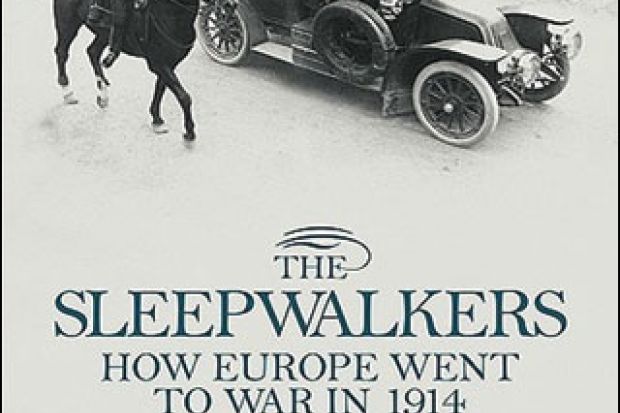David Eastwood, vice-chancellor, University of Birmingham, is reading Christopher Clark’s The Sleepwalkers: How Europe Went to War in 1914 (Penguin, 2013). “I began expecting to admire the scholarship but not to be wholly convinced of the argument. In an important sense, though, the scholarship is the argument, and in a way that’s quite extraordinary Clark takes us beyond explanation to understanding. The book builds like a Brucknerian crescendo, and its impact is equally overwhelming.”

Liz Gloyn, lecturer in Classics, Royal Holloway, University of London, is reading Jane Smiley’s Ten Days in the Hills (Faber, 2008). “Smiley gleefully riffs on Boccaccio’s The Decameron in this modern retelling, where the characters try to escape the Iraq war instead of the Black Death, and the tales told vary from recaps of film plots to personal anecdotes to unexpected encounters in the narrative. Great fun to read, and even more so if you can spot the allusions.”

Roger Morgan, formerly professor of political science, European University Institute, is reading Christopher Hill’s The National Interest in Question: Foreign Policy in Multicultural Societies (Oxford University Press, 2013). “The head of the University of Cambridge’s department of politics and international studies offers a pioneering and comprehensive analysis of a significant and growing issue: a government conducts ‘foreign policy’ to advance its ‘national interest’, but what if the ‘nation’ it represents contains substantial immigrant minorities? Hill thoughtfully explores, for instance, the interactions between Britain’s conflicts in Islamic countries and its own Muslim population, among many other cases.”

R. C. Richardson, emeritus professor of history, University of Winchester, has been reading Maud Pember Reeves’ Round about a Pound a Week (Virago, 1978). “A 1913 sociological and statistical case study of the constant struggles of prematurely ageing working-class wives in early 20th-century Lambeth to eke out their meagre and often precarious income to support family and home. It reinforced Charles Booth’s earlier findings about the prevalence of poverty in the capital and made a spirited case for remedial intervention at state and local level.”

Sharon Wheeler, senior lecturer in journalism, University of Portsmouth, is reading Anya Lipska’s Death Can’t Take a Joke (The Friday Project, 2014). “So you reckon that Scandi noir is passé these days? Then give this a punt – and you’ll be able to cuss fluently in Polish by the end. Lipska’s gruff Polish fixer patrols London’s mean streets with a quaintly courtly air, sparring as he goes with a feisty young female cop. Gritty and topical crime fiction.”
Register to continue
Why register?
- Registration is free and only takes a moment
- Once registered, you can read 3 articles a month
- Sign up for our newsletter
Subscribe
Or subscribe for unlimited access to:
- Unlimited access to news, views, insights & reviews
- Digital editions
- Digital access to THE’s university and college rankings analysis
Already registered or a current subscriber? Login

